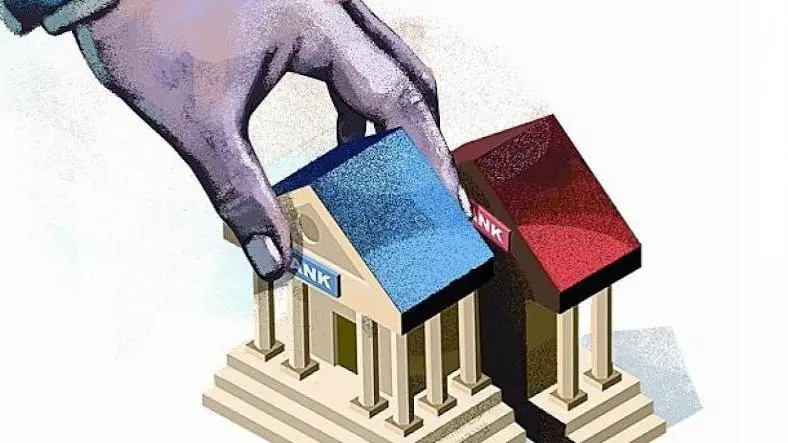The Finance Minister has announced in Union Budget of India for 2021-22, that two Public Sector Banks (PSBs) will be Privatised. The policy of government in last three decades of economic reforms was to sell a part of shares in Public Sector Undertakings (PSUs) including PSBs to public while retaining the controlling share in its own hands.
Privatisation of PSBs is important because government has been investing huge amounts in them every year in last decade to keep these banks from collapsing. This is called "capitalisation" of banks, that is, augmenting the capital to compensate for the losses incurred by them.
- One aspect of this investment is to bring the capital of PSBs in line with international norms.
- The other aspect is that this investment covers up losses incurred by these PSBs.
- More capital is required because they have incurred losses and their existing capital has been wiped off.
The first criticism of this step is that money earned from privatisation will be used to support increasing consumption expenditures of government such as paying higher salaries and dearness allowance to its employees. This criticism is only partially correct.
The second criticism of privatisation is that government is stepping back from its responsibilities of "Welfare State". The banks were nationalised in 1971 with the idea that private banks were not serving rural areas and the poorer sections of society. They were nationalised so that they could be directed to open branches in rural areas and provide loans to priority sectors.
- Truly speaking, it was not necessary to nationalise the banks in order to provide banking services to the rural areas.
- The Reserve Bank of India (RBI) had adequate powers to direct the private banks to open branches in the specified backward areas.
The third criticism of privatisation is that private banks indulge in giving loans to the sister concerns of their owners. This is correct. However, the same problem exists in the PSBs. They provide loans to doubtful entities at the asking of the Secretaries and the Ministers coupled with corruption by the bank officials.
The Non-Performing Assets (NPAs) of PSBs have arisen in large measure due to such lending. The problem of "bad" lending, therefore, has no relation with the lender being a PSBs or a private bank
Both can equally be at fault. The solution of this problem, again, is for the RBI to vigilantly track the lending portfolios of the private banks and take proactive steps when they indulge in lending to their sister concerns or doubt about the viability of the borrowers emerge
And, Finance Minister of India
- Has to be congratulated that she had decided to privatise two PSBs.
- Should move fast and take steps to privatise the major PSBs. The stock market conditions are favourable at present.
- Must use the present buoyancy in the stock market to privatise the larger PSBs. That will provide the much-needed revenues to meet the contingencies arising out of the Covid-19 pandemic.
The additional receipts from privatisation should be used to make public investments in new areas such as genetics, big data and space research. This will lay the foundations of our technological prowess of India in the coming decades.















